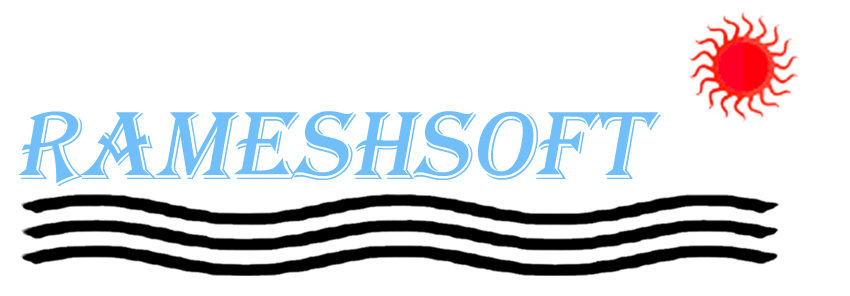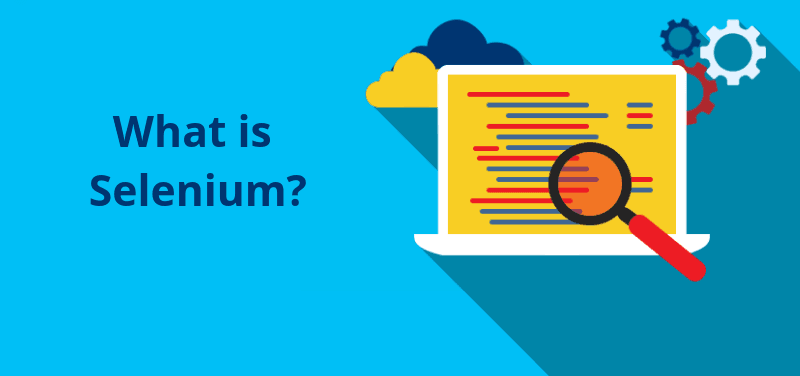Selenium is a portable framework for testing web applications. Selenium provides a playback (formerly also recording) tool for authoring functional tests without the need to learn a test scripting language (Selenium IDE). It also provides a test domain-specific language (Selenese) to write tests in a number of popular programming languages, including C#, Groovy, Java, Perl, PHP, Python, Ruby and Scala. The tests can then run against most modern web browsers. Selenium deploys on Windows, Linux, and macOS platforms.
SELENIUM
CORE JAVA FOR SELENIUM
- Why core java for selenium?
- Overview of java
- Installing of java
- Installing of Eclipse
- Features of java
- Data Types in java
- Primitive Data Types
- Non-Primitive Data Types
- String Class
- Conditional statements
- Selection statements
- If Statements
- If-else Statements
- Else-if Statements
- Switch
- Iterative Statements
- While
- do-while
- for
- foreach
- Transfer statements
- Break
- Continue
- Throw
- Throws
- Finally
- Usage of Control Statements in selenium
- Variables
- Static Variables
- Non-Static Variables
- Methods
- Static Methods
- Non-Static Methods
- Operators
- Access specifiers
- Public
- Private
- Protected
- Default
- Usage of Access Specifiers
- What is Main() Method
- JVM Architecture
- What is Class
- What is Object
- Local variables
- Global variables
- Object References
- Call By Reference
- Call By value
- Initialisation of Variables
- Through variables
- Through Object
- Through constructors
- What is Constructors
- What is Constructor Overloading
- What is this() constructor
- What is super() constructor
- What is this keyword
- What is super keyword
- Inheritance
- Types of Inheritance Concepts
- Polymorphism
- Overloading
- Overriding
- Data Hiding
- Encapsulation
- Data Abstraction
- Interfaces
- Abstract Methods
- Abstract Classes
- Importance of OOPS Concept for selenium
- Accessing of Classes in different packages
- Arrays
- Single Dimensional Arrays
- Two Dimensional Arrays
- Object Arrays
- Collections
- List
- Set
- ArrayList
- LinkedList
- HashSet
- TreeSet
- Vector
- Stack Classes
- Difference B/W List And Set
- Map
- HashMap
- Linked HashMap
- Exception Handling
- Try
- Catch
- Final
- Finally
- Finalize
- Throws
- Throw
- Difference B/W final/finally/finalize
- What are Iterators
- Difference B/W Iterator and foreach
- Generics
SQL SERVER 2014
- INTRODUCTION TO DBMS
- File Management System And its Drawbacks
- Database Management System(DBMS) and Data Models
- Physical Data Models
- Logical Data Models
- Heirarchical Data Model(HDBMS)
- Network Data Model(NDBMS)
- Relational Database Model(RDBMS)
- INTRODUCTION TO SQL SERVER
- Advantages and Drawbacks of SQL Server compared to Oracle and DB2.
- Why SQL Server to selenium
- Connection SQL Server to selenium
- Connecting to server
- Server Type
- Server Name
- TSQL(Transact Structured Query Language)
- History and Features of TSQL
- Types of SQL Commands
- Data Definition Language(DDL)
- Data Manipulation Language(DML)
- Data Query Language(DQL)
- Data Control Language(DCL)
- Transact Control Language(TCL)
- Database
- Creating Database
- Altering Database
- Deleting Database
- Constraints
- Procedural Integrity Constraints
- Declarative Integrity Constraints
- Not Null, Unique, Default and check constraints
- Primary Key and Referential Integrity or Foreign Key Constraints
- Data Types in TSQL
- Table
- Creating Table
- Altering Table
- Deleting Table
- DATA MANIPULATION LANGUAGE
- Insert
- Identity
- Update
- Delete
- Truncate
- Difference B/W Delete and Truncate
- DATA QUERY LANGUAGE
- Select
- Where clause
- Order by clause
- Distinct Keyword
- Isnull() function
- Predicates
- In
- Like
- BUILT IN FUNCTIONS
- Scalar Functions
- Numeric Functions
- Character Functions
- Conversion Functions
- Data Functions
- Union
- Intersecr,Except
- JOINS
- Inner Join
- Equal Join
- Natural Join
- Self Join
- Outer Join
- Cross Join
- SUB QUERIES
- Single Row Sub queries
- Multi Row Sub Queries
- Nested Sub Queries
- INDEXES
- Clustered Indexes
- Non Clustered Indexes
- Create, Alter and Drop Indexes
- Using Indexes
- VIEWS
- Purpose of views
- Creating ,Altering and Dropping Indexes
- Simple and Complex views
- CURSERS
- Working with cursors
- Types of Cursors
- Forward_Only and Scroll cursors
- Static , Dynamic and Keyset Cursors
- Local and Global Cursors
- STORED SUB PROGRAMS
- Stored Procedures
- Optional Parameters
- Input and Output Parameters
- Permissions on Stored Procedures
- Triggers
- Purpose of triggers
- Difference B/W Stored Procedures and User Defined Functions and Triggers
- Exception Handling
SELENIUM WEBDRIVER
- What is Automation Testing
- Why Automation Testing
- Advantages of Automation Testing
- What is Selenium and Advantages of Selenium
- Components of Selenium
- What is WebDriver
- What is web Application
- What is WebElements
- How to identify elements in webpage using selenium
- Tools to identify the elements
- What is Firebug
- What is FirePath
- IE developer Tools
- Google chrome developer Tools
- Locating elements by Id
- Finding elements by name
- Finding elements by class
- Finding elements by classname
- Finding elements by linktext
- Finding elements by partial linktext
- Finding elements by xpath
- Relative Xpath
- Absolute Xpath
- Finding elements by CSS Selector
- Selenium IDE
- Selenium RC
- What are attributes and their usage
- Dynamical Handling of xpath
- How to perform mouse over operations
- How to handle Text boxes
- How to handle Radio buttons
- How to handle Check boxes
- How to handle Check List
- Select by visibleText()
- Slect by Id
- Select by name
- How to handle Weblist
- How to handle AutoSuggestions
- How to get Links
- How to identify FRAMES
- How to get Frames
- How to handle Multiple windows
- How to handle popups(different types of popups)
- How to handle web based popups
- How to handle window based popups
- How to upload a file in different ways
- How to capture Screenshots
- How to handle different browsers
- What is Object Repository
- How to perform drag and drop operations
- How to perform dragable operations
- How to perform right click operations
- How to perform enable operations
- What is Assert
- What is Verify
- How to perform validations
- What is synchronisation
- Implicit Wait
- Explicit Wait
- Fluent wait
- Sleep
- What is webelement in selenium
- Browser commands in selenium
- webelement commands in selenium
- switch commands in selenium
- What is java script executor and the usage
- What is Takescreenshot in selenium
- What is Robot class in selenium
- How to perform horizantal and vertical scroll operations
- How to perform keyboard operations
- How to perform CONTROL operations
- How to perform CONTROL+SHIFT operations
- Enabled and disabled links
- How to find web text on webpage
- Reusable functions on selenium webdriver
- Reusable functions at framework level
TestNG
- What is tesNG
- Why TestNG
- Advantages of testNG
- How to Install testNG
- Annotation in testNG
- Use of Annotations
- Flow of Execution of Annotations in testNG
- What is dataprovider
- Parameter Annotations
- Use of parameter Annotations in real time
- Timeouts in Test case level
- Timeouts in Suite level
- Priorities
- Enabled concept in testNG
- Execution of testcases using GROUPS
- Depends on Methods
- Depends on Groups
- Parallel in test level
- Parallel in suite level
- Cross Browsing testing using testNG
- Compatibility testing Using testNG
- Different kinds of Reports in testNG
- Default Reports in testNG
- How to execute failed test cases in testNG
SELENIUM WEBDRIVER WITH FILES
- How to write data to a Excel File(Test Data)
- How to read data from a excel file
- How to write data to a text file
- How to read data from text file
- How to write data to a properties file(Object Repository)
- How to read data from a properties file
- Files concepts with reusable formata
- Handling Date Pickers
- Files with Real time approach
DATABASE TESTING USING SELENIUM
- Installing MySql Database
- JDBC Drivers
- Connection Interface
- Resultset Interface
- Looping in Resultset interface
- Attachment of queries to selenium
- Using Annotations of TestNG to establish Connection with database
SELENIUM WEBDRIVER FRAMEWORKS(REAL TIME)
- Keyword Driven Framework
- Data Driven Framework
- Page Object Model
- Modular Driven Framework
- Writing and Developing test scripts Real Time coding standards using framework
AUTOMATION WINDOW COMPONENTS
- Autoit
- Finder Tool
- Robot
SELENIUM GRID
- Introduction to Grid
- Use of selenium Grid
- When to use it?
- Selenium-Grid 2.0
- How selenium-Grid works with a Hub andNodes
- Installation
- Starting Selenium Grid
- Configuring Selenium grid
- Hub configuration
- Node configuration
- Executing tests using Selenium Grid
ANT
- What is ANT
- Why ANT
- Downloading and configuring Ant
- Building a BAT file to run tests using ANT
- Configuring frameworks using ANT
MAVEN
- What is Maven
- Why Maven
- Installing Configuring the Maven
- Maven Repositories
- Importing Archetypes
- Building a selenium project and running it through Maven
- Eclipse plugin for Maven
JENKINS
- What is Continuous Integration
- How Jenkins helps in Continuous Integration
- Downloading and Installing Jenkins
- Build Triggers
- Configuring/Scheduling Maven Project in Jenkins
ADDITIONAL REAL TIME SCENARIOS
- HOW TO GIVE NAMING CONVENTIONS IN REAL TIME
- REAL TIME PROJECT WITH SCRIPTS DEVELOPEMENT WITH REAL TIME FRAMEWORK
- HOW TO CRACK INTERVIEW
- TECHNICAL ROUNDS
- PROJECT ROUNDS
- AFTER GETTING into THE COMPANY HOW TO SURVIVE…….
REAL-TIME ACTIVITIES
- What is DSR
- What is WSR
- What is MSR
- Every week we conduct written tests on java and selenium
- Mock interviews
- Mock Telephonic Interviews
- Until get a job assistance
- Assistance in resume preparation
- Discussions on how to crack technical and manager rounds
**Real Time Project Implementation Using Selenium**

